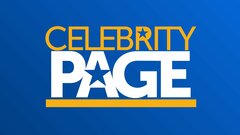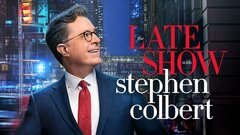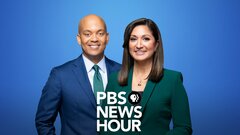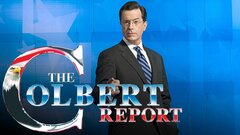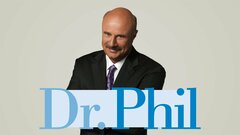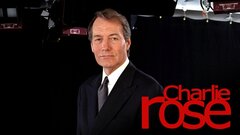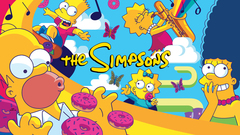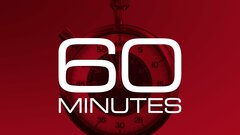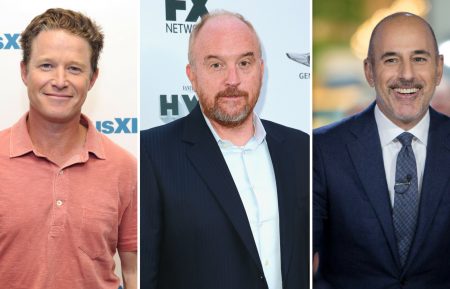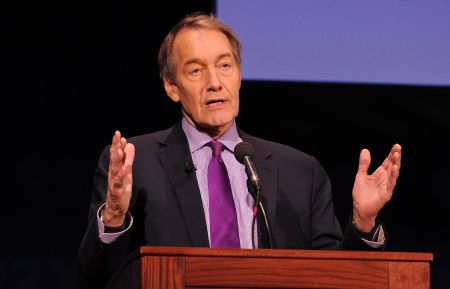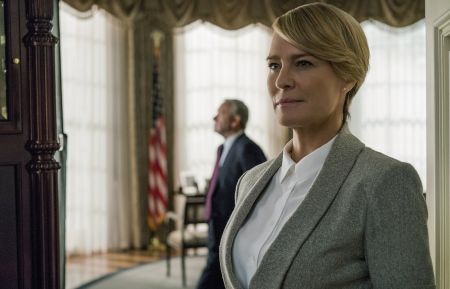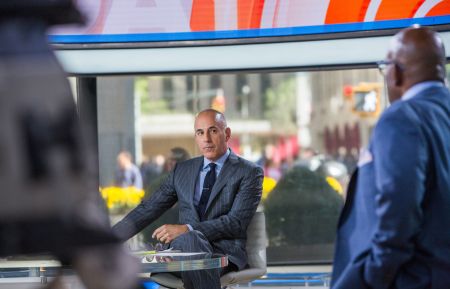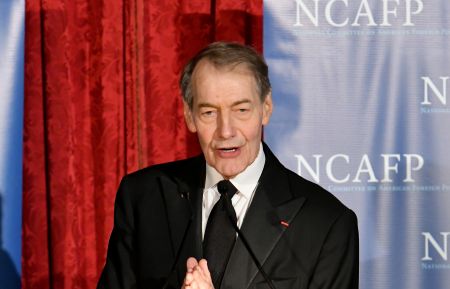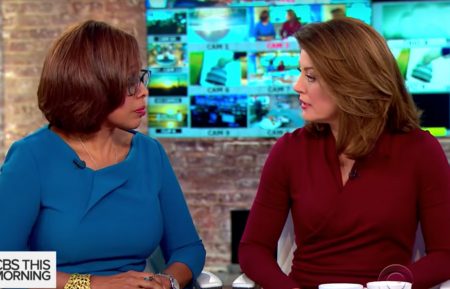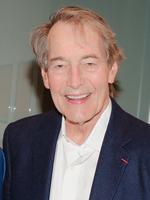Disarmingly intelligent talk show host Charlie Rose became one of broadcasting's most respected interviewers as the creator of his long-running eponymous television program, only to see that respect fall apart in 2017 when he was accused of sexual harassment by multiple women. After leaving a job in the financial industry in the mid-1970s, he received invaluable mentoring from esteemed journalist-commentator Bill Moyers as a producer on "Bill Moyers Journal" (PBS, 1971-1981).
A move to Texas near the end of the decade provided him with the opportunity to host his own program "The Charlie Rose Show" (KXAS, 1979-1981), prior to his receiving national exposure and an Emmy for his work on the ground-breaking "CBS News Nightwatch" (CBS, 1982-1992). It was, however, as the host of "Charlie Rose" (PBS, 1991-2017) where he found his format and his calling, as host, producer and de facto booking agent.
Inquisitive yet gracious, his interview style was far less aggressive than that of a "hard news" reporter, yet more nuanced than any question posed in the average "puff piece." Rose conducted his discussions in direct conversational style, allowing no one other than himself and his guest in the studio during the interview - a feat accomplished through the employment of robotic cameras.
Rose's reputation as a fair but thoughtful host enabled him to secure in-depth interviews with such diverse personalities as poet-author Maya Angelou, Microsoft founder Bill Gates and actor-director George Clooney; and led to a second gig with CBS, where he served as a co-anchor for "CBS This Morning" from 2012 to 2017.
However, Rose's reputation suffered when, in November 2017, eight women accused him of sexual harassment. Following the allegations, Rose was fired by CBS News, and PBS cancelled his long-running talk show.
Born Charles Pete Rose, Jr. on Jan. 5, 1942 in the rural town of Henderson, NC, he was the only son of tobacco farmers Charles, Sr. and Margaret Rose, who also ran a small country store.
Always keenly intelligent and a voracious reader, young "Charlie," who at an impressive height of 6'4" was a high school basketball star, helped in the running of the family business after school.
He went on to attend Duke University, where he studied pre-med and political science prior to his graduation in 1964 with a degree in history. Rose continued his education at Duke in pursuit of a legal degree at the university's School of Law. It was during his time there that he met his future wife, Mary King, whom he wed shortly after earning his Juris Doctor in 1968.
At about this time, the newlyweds moved to New York and Rose took a position with the banking consortium Bankers Trust. Mary was working as a researcher for the American offices of the BBC and the recently launched news program "60 Minutes" (CBS, 1968- ).
His field greatly interested her husband, who had long been an admitted news junkie. Gradually, Rose began picking up freelance reporting assignments on the weekends, and before long he was hired on as a part-time reporter at New York's WPIX-TV in 1972.
A major turning point in Rose's career came when he was introduced by his wife to journalist Bill Moyers in 1974.
According to Rose, he and Moyers connected immediately. When he was offered the chance to work as Moyers' assistant on "Bill Moyers' International Journal" (PBS, 1974), the nascent broadcaster jumped at the chance.
The intelligent, hardworking Rose was soon elevated to the position of managing editor, then producer and, finally, executive producer of "Bill Moyers Journal" (PBS, 1971-1981) in 1975.
In 1976 he became a correspondent on Moyers' "USA: People and Politics" (PBS, 1975-76), resulting in a Peabody Award for his work on the installment, "A Conversation with Jimmy Carter."
Grateful for what he learned during those all-important formative years with Moyer, Rose eventually left to work as a broadcast journalist in locales like Washington, D.C. and Chicago until he was offered a position as program manager at KXAS-TV in Dallas-Fort Worth in 1979.
It was not, however, the program manager job that enticed Rose. It was the offer to allow him to create a show of his own at the station, that brought Rose to Texas.
During his tenure in the Lone Star State, the indefatigable Rose pulled double-duty as both program manager and as the host of the first true incarnation of "The Charlie Rose Show" (KXAS, 1979-1981).
Filmed live in front of a studio audience, "The Charlie Rose Show" performed well and made Rose a noted personality in the Dallas-Fort Worth areas.
Less successful was the effect his long hours, effectively working two jobs, were taking on his marriage. The burden of researching, producing, booking and hosting the program sometimes kept him at the station until three o'clock in the morning.
At the same time, Mary was working as a weekend anchor for a station in Tulsa, OK. To the regret of both, the couple divorced in 1980.
In an attempt to gain broader syndication, Rose moved the show to Washington, D.C. for a period prior to taking on a new position as the host of "CBS News Nightwatch" (CBS, 1982-1992) in 1984.
Over the next six years, Rose continued to hone his journalistic skills, as evidenced by an Emmy Award won in 1987 for his interview with infamous cult leader Charles Manson on the late-night news program.
He left "Nightwatch" in 1990 for a brief stint as the host of an interview program called "Personalities" for Fox. Dismayed by the tabloid nature of the show, Rose asked to be released from his contract six weeks later.
It was a time of transition for Rose, who had purchased 500 acres of North Carolina farmland the year prior and whose father died in 1990. After briefly entertaining a plan to honor his departed father and become a "gentleman farmer" on his newly acquired land, Rose ultimately heeded his true calling and returned to New York and the world of television broadcasting.
It was then that he launched "Charlie Rose" (PBS, 1991-2017), the program that would make him a household name with insomniacs and news hounds nationwide.
Initially produced and broadcast locally from station WNET, the show later moved to syndication on PBS and was produced by Rose's own company soon after.
Reflecting its host's diverse personal interests, "Charlie Rose" featured nightly, in-depth discussions with noted thinkers, writers, scientists, politicians, actors, musicians, athletes and newsmakers of all stripes.
Less of a formal interrogation than an intimate discussion, Rose's unconventional interview style drew praise for its casual, candid nature, as well as criticism for what some perceived as an overly congenial approach.
The simple, yet effective setting of Rose and his guest seated at a round oak table against a solid black backdrop left no room for distraction and gave the viewer the impression of eavesdropping on a private conversation.
A form of validation for this subtle approach came when Rose won a second Emmy Award for Outstanding Interview(s) on "Charlie Rose" in 1992.
In addition to his duties on "Charlie Rose," he served as a correspondent on the ill-fated "60 Minutes II" (CBS, 1999-2005) throughout the course of its six-year run.
Public television's preeminent interviewer raised some eyebrows and was forced to deflect some questions himself when his program agreed to a substantial underwriting deal with the Coca-Cola Company.
Still a "60 Minutes II" correspondent at the time, Rose insisted that he would never report on a story that might potentially cause a conflict of interest.
Never one to take himself too seriously, Rose made several cameos over the years - usually as himself - in such film and TV programs as the quasi-Clinton biopic "Primary Colors" (1998), the pioneering animated satire "The Simpsons" (Fox, 1989- ) and the Ben Kingsley-Penelope Cruz drama "Elegy" (2008), based on the novel by Philip Roth.
Rose had a serious health scare in the spring of 2006 during a trip to Syria. After experiencing a severe shortness of breath, he was taken to a hospital in Paris where they performed mitral valve repair surgery on his heart.
Rose was back in the studio taping installments of "Charlie Rose" by that summer.
In the spring of 2009, Rose's calming influence was further demonstrated when it was reported that he brokered an off-the-record peace summit between battling television pundits Keith Olbermann and Bill O'Reilly, via a sit-down with their respective corporate bosses, General Electric chairman Jeffrey Immelt and News Corporation head, Rupert Murdoch.
Rose debuted as co-host of the newly revamped "CBS Morning News" (CBS 2012- ) in January 2012, while maintaining his signature late night interview show.
In late 2017, during a period of renewed focus on sexual assault and harassment in politics and the media, the Washington Post published allegations from eight women that Rose had harassed them between the mid-'90s and 2011.
Rose, who did not dispute the claims, was fired by CBS and had his show canceled by PBS within days of the story's publication.


